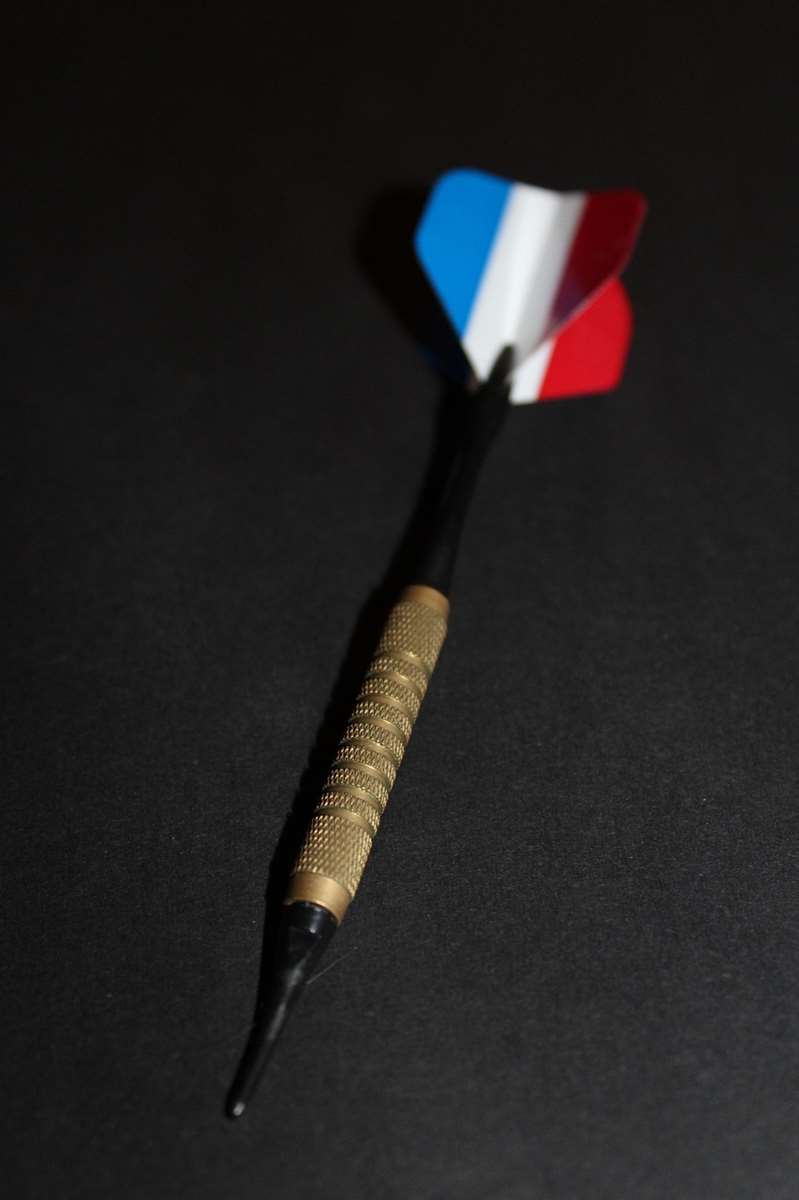The history of darts game is a fascinating journey from medieval military practice to a beloved pub pastime and professional sport. This article explores the evolution of darts, from its humble origins to its modern-day popularity, uncovering the key figures and events that shaped the game we know and love. We will delve into its earliest forms, standardization of the rules, and the rise of professional darts leagues.
⚠️ Still Using Pen & Paper (or a Chalkboard)?! ⚠️
Step into the future! The Dart Counter App handles all the scoring, suggests checkouts, and tracks your stats automatically. It's easier than you think!
Try the Smart Dart Counter App FREE!Ready for an upgrade? Click above!
Early Origins: The Genesis of Darts
The precise origins of darts are shrouded in some mystery, but the prevailing theory points to medieval England. It’s believed that soldiers, during periods of rest or downtime, would practice their throwing skills. Shortened arrows or spears were likely the first projectiles, thrown at upturned wine casks or tree trunks. This rudimentary form of target practice gradually evolved into a more formalized game.
Several factors contributed to this evolution. Firstly, the shortening of arrows created a smaller, more manageable projectile suitable for indoor play. Secondly, the use of tree trunks and wine casks provided a natural target, leading to the development of scoring systems. Over time, the game moved indoors, likely to escape inclement weather. This transition marked a significant step in the history of darts game.

The exact timeline remains uncertain, but by the late 19th century, darts had become a popular pub game throughout England. Different regions developed their own variations of the rules and target board designs, leading to considerable inconsistency.
Standardization and the Emergence of Rules
The lack of standardized rules proved problematic as darts spread in popularity. A crucial step in the history of darts game was the attempt to create a unified set of regulations. Numerous individuals and organizations contributed to this process.
One notable figure is Brian Gamlin, an Englishman credited with devising the standard numbering system for the dartboard. The arrangement, seemingly random at first glance, is strategically designed to penalize inaccurate throws. Placing high numbers next to low numbers ensures that even slight errors can result in significant score reductions.
The story of Gamlin’s contribution to the game is shrouded in some mystery. However, the impact of his numbering system is undeniable. This arrangement fostered a more challenging and skillful game. It remains the standard in most darts competitions today.
Furthermore, the formation of organizations like the National Darts Association (NDA) in the early 20th century played a crucial role in standardizing rules and promoting the game on a national level. These organizations worked to establish consistent regulations for tournaments and competitions.
The Rise of Professional Darts
The mid-20th century witnessed the rise of professional darts. The formation of organizations like the British Darts Organisation (BDO) and the Professional Darts Corporation (PDC) marked a significant turning point. These organizations provided a platform for players to compete professionally and earn a living from the sport.
The BDO, founded in 1973, was initially the leading governing body for darts in the UK. It organized the World Professional Darts Championship, which quickly became a prestigious event. The PDC, established in 1992 (originally as the World Darts Council), emerged as a rival organization, offering higher prize money and a more commercially focused approach.
This split created a period of intense rivalry between the two organizations, with top players choosing sides. However, it also led to increased exposure for the sport and a rise in its popularity. Today, both the BDO and the PDC play significant roles in the history of darts game.

Key Figures in Professional Darts
Several players have become household names, contributing to the sport’s popularity and shaping its image. These include:
- Eric Bristow: A five-time world champion, Bristow was a dominant force in the 1980s and is considered one of the greatest players of all time.
- Phil Taylor: “The Power” Taylor is widely regarded as the greatest darts player ever, with 16 world championships to his name. His skill and dominance revolutionized the sport.
- Raymond van Barneveld: A five-time world champion, van Barneveld is a popular Dutch player who has captivated audiences with his skill and charisma.
These players, among others, helped to elevate darts to a professional level. They drew in larger crowds and increased television viewership, solidifying its place in the sporting world. Thinking about venturing into the game? Make sure to start with Basic Darts Fundamentals for Beginners to get a solid understanding.
Darts Today: A Global Sport
Darts is now a global sport, enjoyed by millions of people around the world. The PDC World Darts Championship, held annually at Alexandra Palace in London, is a major sporting event, attracting huge crowds and television audiences. The sport’s popularity has spread beyond its traditional heartland of the UK, with strong followings in countries like the Netherlands, Germany, and Australia.
The accessibility of darts is a key factor in its enduring appeal. It requires minimal equipment and can be played by people of all ages and abilities. Pubs and social clubs remain important venues for the game, but darts is also increasingly played at home, with electronic dartboards and online gaming platforms providing new ways to enjoy the sport.
Technological Advancements in Darts
Technology has also played a role in the evolution of darts. Electronic dartboards with automatic scoring systems have made the game more accessible and convenient. Online platforms allow players to compete against opponents from around the world, fostering a global darts community.

Furthermore, advancements in dart design and manufacturing have improved the accuracy and performance of darts. Players can now choose from a wide range of dart weights, materials, and designs to suit their individual throwing styles.
The Psychology of Darts
While physical skill is important, the mental aspect of darts is often overlooked. Professional darts players require exceptional concentration, composure, and mental toughness to perform at their best under pressure. The ability to block out distractions, manage nerves, and maintain focus is crucial for success.
Mindfulness techniques and visualization are commonly used by players to improve their mental game. Developing a pre-throw routine helps to create consistency and reduce anxiety. The ability to learn from mistakes and maintain a positive attitude is also essential for long-term success in darts. If you want to try out some modified rules, why not try Fun dart game variations with modified rules?
Tips for Improving Your Darts Game
Whether you’re a beginner or an experienced player, there are always ways to improve your darts game. Here are a few tips:
- Practice regularly: Consistent practice is essential for developing muscle memory and improving your accuracy.
- Focus on your technique: Pay attention to your stance, grip, and throwing motion. Small adjustments can make a big difference.
- Aim accurately: Visualize the target and focus on hitting it consistently.
- Develop a pre-throw routine: Establish a consistent routine to help you focus and relax before each throw.
- Analyze your performance: Identify your strengths and weaknesses and work on improving your areas of weakness.
- Experiment with different darts: Find a set of darts that feels comfortable and suits your throwing style.
- Play against stronger opponents: Playing against better players will challenge you to improve your game.
- Don’t be afraid to experiment: Try new things and see what works best for you.

Remember that improving your darts game takes time and effort. Be patient, persistent, and enjoy the process.
The Enduring Appeal of Darts
The history of darts game demonstrates its remarkable ability to adapt and evolve over time. From its humble beginnings as a military pastime to its current status as a global sport, darts has consistently captured the imagination of people around the world. Its accessibility, simplicity, and the combination of physical skill and mental fortitude contribute to its enduring appeal.
Whether played in a pub, at home, or in a professional tournament, darts provides a sense of camaraderie, competition, and entertainment. The satisfaction of hitting a perfect score or winning a close match is a rewarding experience that keeps players coming back for more.

The Future of Darts
The future of darts looks bright. The sport’s increasing popularity, combined with technological advancements and innovative marketing strategies, suggests that darts will continue to grow and evolve in the years to come. The emergence of new talent, the expansion of professional leagues, and the increasing use of technology will shape the future of the game. Consider how to level the playing field with How to make darts fairer with handicap rules.
Darts will continue to be a source of entertainment and competition for generations to come. The rich history of darts game is a testament to its enduring appeal and its ability to adapt to changing times.
Conclusion: A Game for Everyone
The history of darts game is a captivating saga spanning centuries, marked by evolution, standardization, and globalization. From its rudimentary origins in medieval England to its current status as a thriving professional sport, darts has proven its enduring appeal and adaptability. The game’s accessibility, simplicity, and blend of physical skill and mental focus continue to captivate players and audiences worldwide. Whether you’re a casual player or an aspiring professional, darts offers a unique and rewarding experience. So, pick up a set of darts, aim for the bullseye, and become a part of the rich and vibrant history of this timeless game. Now that you know the basics, explore our other articles to delve deeper into the world of darts and improve your game!
Hi, I’m Dieter, and I created Dartcounter (Dartcounterapp.com). My motivation wasn’t being a darts expert – quite the opposite! When I first started playing, I loved the game but found keeping accurate scores and tracking stats difficult and distracting.
I figured I couldn’t be the only one struggling with this. So, I decided to build a solution: an easy-to-use application that everyone, no matter their experience level, could use to manage scoring effortlessly.
My goal for Dartcounter was simple: let the app handle the numbers – the scoring, the averages, the stats, even checkout suggestions – so players could focus purely on their throw and enjoying the game. It began as a way to solve my own beginner’s problem, and I’m thrilled it has grown into a helpful tool for the wider darts community.